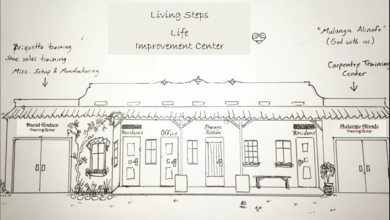How does diabetes affect your feet?
(Past articles available at http://ashland.oregon.localsguide.com)
Of the sixteen million Americans with diabetes, 25% will develop foot problems related to the disease. Diabetes is a disease that affects every part of the body, even when the diabetes is under control. Diabetics, because of the nature of their disease, have fewer defenses against everyday wear and tear, especially where the feet are concerned. Increased blood sugar affects the feet in the following ways:
Peripheral Neuropathy:
The sugar affects the nerves of the feet, causing peripheral neuropathy. Peripheral neuropathy is a disease which can produce anything from strange feelings in the feet (burning, tingling, numbness, pain, etc.) to a complete loss of feeling in the feet. The lack of proper feeling makes the diabetic more likely to injure their feet without knowing it. You could have a tack or stone in your shoe and walk on it all day without knowing. You could get a blister and not feel it. This makes the diabetic more susceptible to infections; fractures which are not felt, and do not heal properly.
Poor Circulation:
Sugar also affects the smaller blood vessels in the feet causing peripheral vascular disease (P.V.D.). P.V.D. decreases the amount of blood, nutrients, and oxygen that are brought to the skin, fat, muscles, joints and bones of the feet. P.V.D. causes tissues to be absorbed, an inability to properly heal, including everything from small cuts to broken bones, along with just plain fatigue and weakness of the feet.
Calluses and Foot Ulcers:
Diabetes contributes to the absorption of the natural protective fatty pad on the bottom of the feet. This is due to P.V.D. and/or the natural aging process. When the fat pad becomes thinned or completely absorbed, it cannot protect the skin properly from normal bone pressure. This puts tremendous stress on the skin which underlies these bones, and can cause inflammation, calluses, and eventually skin ulcers which may become infected. These problems may become worse without the diabetic knowing it, if peripheral neuropathy is present.
Medicare’s Therapeutic (diabetic) Shoe Bill:
Due to the serious nature of the foot issues associated with diabetes, Medicare’s Therapeutic (diabetic) Shoe Bill allows anyone on Medicare part B, who is a diabetic, to receive annually (each calendar year [Jan 1-Dec 31st]) 1 pair of diabetic shoes, 3 pairs of diabetic inserts and nighttime Gauntlets, at no cost.
Hopefully these facts help you understand how shoes can affect diabetic feet. It is very important for diabetics to take the necessary precautions to prevent all foot related injuries. Due to the consequences of neuropathy, daily observation of the feet is critical. When a diabetic patient takes the necessary preventative foot care measures, it greatly reduces the risks of serious foot conditions.
Remember, if you care about your teeth or what you eat, you should care about your feet. Talk to you next month. (This not medical advice, it’s simply helpful information. If you have concerns talk to your medical professional.)
Dan has been in and around shoe repair and retail shoes for over 40 years. His parent owned both a shoe repair/retail shoe store and operated a licensed vocational school teaching shoe repair. The Shulters family has been repairing shoes since 1947.




